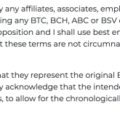By Dr. Pooyan Ghamari, Swiss Economist and Visionary
The genesis of this exploration stems from meaningful conversations with someone close to me, where we delved into the philosophies of nihilism and objectivism. These discussions were not just intellectual exercises; they served as a foundation for my current perspectives on the intersection of technology, artificial intelligence (AI), and human potential. What became evident through these talks was that these seemingly contrasting philosophies could merge into a guiding framework for the modern era.
In an age where technology is reshaping society, the philosophies of neo-nihilism and objectivism provide crucial insights for understanding the human-AI matrix. Neo-nihilism liberates us from outdated values, offering a blank canvas on which we can create our own meaning, while objectivism provides the rational structure necessary for individuals to pursue progress and success. Together, they present a framework for engaging with AI, human genetics, and the broader technological systems transforming our world.
Neo-Nihilism: Embracing the Freedom to Create Meaning
Throughout our conversations, we often returned to the core of nihilism, which rejects the idea of inherent meaning in life. However, rather than seeing this as a source of despair, we viewed it as a liberating force. Neo-nihilism, as we conceived it, is not about embracing the void; it’s about seizing the freedom to create personal purpose in a world where none is predefined. In today’s era of rapid technological advancement, this concept has never been more relevant.
Neo-nihilism allows us to view technology, particularly AI, for what it is: a neutral tool without inherent meaning or purpose, waiting for human input to shape it. Just as AI systems learn and adapt based on the data they process, humans too are shaped by their experiences, environments, and education. But while AI advances at an exponential rate, neo-nihilism reminds us that it is not AI that defines humanity, but rather our ability to define ourselves and our relationship with technology.
In our discussions, we often likened humans to the algorithms they create—both capable of learning, adapting, and evolving. In this way, the absence of inherent meaning in technology becomes a powerful opportunity for innovation. We have the freedom to impose meaning onto these tools and create new realities. This idea finds real-world application in my work with blockchain technology, especially through the A.Land project, where tokenization empowers individuals to build their own financial systems, free from traditional gatekeepers—neo-nihilism in action.
Objectivism: Rational Self-Interest in the Age of Technology
While neo-nihilism releases us from the grip of outdated values, objectivism anchors us in rational self-interest, providing a philosophical framework for navigating a world increasingly dominated by AI and technological advancement. During our discussions, we often debated how Ayn Rand’s objectivism, with its focus on individual reason and self-interest, could guide us in this rapidly changing world.
Objectivism celebrates the power of the individual to think and act in their own interest, but it also recognizes the importance of community and innovation in personal success. In today’s AI-driven world, rational self-interest requires not only personal reflection but a deep understanding of the technologies driving modern economies. While AI can process data faster than any human, it lacks the ethical reasoning and creativity that make us unique. Objectivism teaches us to harness these technologies in the service of human goals and values.
In decentralized financial systems like those I’ve developed, the principles of objectivism are clearly evident. Platforms like A.Land allow individuals to bypass traditional financial structures, granting them control over their economic futures. The rational pursuit of self-interest here is not just about personal wealth—it’s about using advanced tools to secure freedom, while ensuring that these tools are guided by human creativity and ethical reasoning.
Through these discussions, we reached the conclusion that objectivism ensures that AI and technology are not ends in themselves, but rather means to enhance human potential. This rational framework allows us to thrive in a world of rapid technological change, fostering innovation and improving outcomes for both individuals and society.
The Human-AI Matrix: Where Philosophy and Technology Meet
As my exploration of these ideas deepened, it became clear that neo-nihilism and objectivism are not in conflict but are, in fact, complementary. Together, they provide a coherent guide for navigating the human-AI matrix—a dynamic system where genetics, education, and technological systems interact to redefine human capabilities.
In this matrix, neo-nihilism grants the freedom to explore and create, unshackled from the limitations of traditional values, while objectivism provides the rational framework to achieve meaningful goals within this system. Much like AI algorithms that process inputs to generate outputs, humans engage in a similar feedback loop—our experiences and knowledge shape our actions and innovations.
In this evolving landscape, we are not passive participants. We are both the creators and the products of the systems we build, continuously learning and adapting alongside the technologies we develop. Just as AI can learn from its environment, humans can also evolve, shaping the future through rational thought and creative action.
Education as the Code: Programming Human Potential
In many of our discussions, we touched on the idea that education functions similarly to the code that drives AI. Just as AI evolves by processing data, humans evolve through the experiences and knowledge that shape their thinking. In this sense, education is not merely the transfer of information—it is the programming of human potential.
Through the lens of neo-nihilism and objectivism, education becomes an active process of self-programming. We are not passive recipients of knowledge; we are the architects of our own learning, choosing what to absorb and how to apply it. This is where the two philosophies converge: we are free to define our path (neo-nihilism), but we must do so with rational intent to achieve meaningful goals (objectivism).
Understanding our genetic makeup and how we learn is essential to navigating the human-AI matrix. By optimizing education and self-learning, we can unlock the potential of both human intelligence and artificial systems, ensuring that we use these tools to innovate, create, and evolve.
AI and Technology: Tools for Human Freedom
One key theme that emerged in our conversations was the idea that the AI-driven matrix is not something to fear but a tool that awaits human direction. Neo-nihilism reminds us that the matrix, like life itself, is inherently neutral—devoid of any predetermined purpose until we assign one. Objectivism ensures that we do so rationally, using technology to serve human interests and unlock greater potential.
In this context, AI and technology become extensions of the human mind, enhancing our ability to learn, create, and innovate. We are free to use these tools to define our future, crafting a world where human freedom and technological power work in harmony.
A Future Forged by Thought and Technology
Reflecting on these discussions and the insights they generated, it’s clear that neo-nihilism and objectivism together provide a strong philosophical foundation for navigating the future. In the human-AI matrix, where technology and human intelligence meet, we are both creators and products of the system. The future is not something we enter passively—it is something we actively build through innovation, rational thought, and self-determination.
By embracing the freedom to create our own meaning (neo-nihilism) and the rational pursuit of self-interest (objectivism), we can successfully navigate a world shaped by AI and human potential, building a future where human achievement and technological innovation thrive together.
About the Author: Dr. Pooyan Ghamari is a Swiss economist, visionary, and entrepreneur, recognized for his pioneering work in blockchain technology, decentralized finance, and the integration of AI into human systems. As the founder of the A.Land project, he is at the forefront of exploring the intersection of technology and human potential, aiming to shape the future of finance and society.




